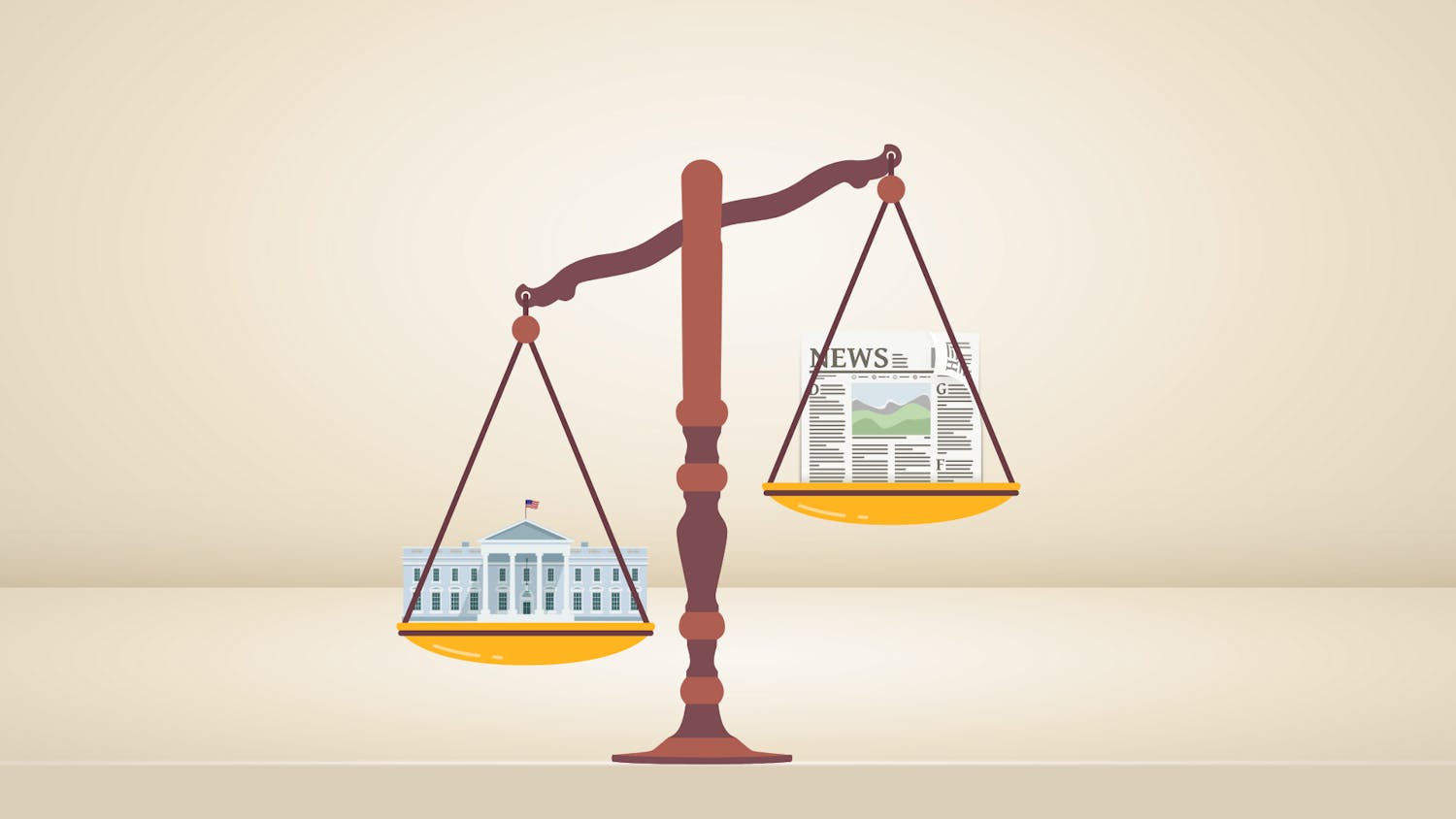The First Amendment of the United States Constitution states, “Congress shall make no law...abridging the freedom of the press.”
The Bill of Rights was ratified in 1791 and is considered by most Americans to be a good thing and a fundamental part of our democracy.
[caption id="attachment_23888" align="aligncenter" width="838"] Photo via Flickr/Pete O’Shea[/caption]
Since the election of Donald Trump in 2016, however, “the press” that the First Amendment claims to protect, has been under attack. Trump refers to much of the press as the “fake news media.” He urges the American people not to trust journalists and he calls them liars.
In June, five journalists were killed at the office of the Capital Gazette, a newspaper based in Annapolis, Md. The gunman, Jarrod Ramos, is thought to have carried out the attack because of a long-standing feud with the paper.
Hostility toward journalists isn’t exclusively a professional issue, either. Student journalists at Liberty University recently had to deal with the very real pressures that journalists face just trying to do their jobs. Things started tentatively with the president of Liberty starting to review articles in the campus newspaper, The Liberty Champion, that mentioned Trump.
After that, he started telling the writers what they could and could not write. A Liberty University Dean went so far as saying, “Your job is to keep the Liberty University reputation and the image as it is. Don’t destroy the image of Liberty University. Pretty simple. Okay?,” according to a Sept. 1 World News Group article. In the end, some of the writers for the Champion were fired and others quit because they didn’t want to be told what they can and cannot write.
The Setonian is lucky enough to have an administration that supports us and and doesn’t try and censor us, and a faculty adviser who would stick up for us if ever needed. The student journalists at Liberty, however, were not so lucky, and this is a major problem.
Student journalism is where a lot of working journalists start out. Whether that be for a school newspaper, radio station, television station, or podcast, most working journalists at least dabble in some form or the other during their time in school. They should be treated with the same respect that working journalists should hopefully be granted, because the First Amendment says so. They should be allowed to cover what they want because they are United States citizens and are granted that privilege.
Student journalism is just as essential to maintaining our democracy as professional journalism, no matter what the president of a university says, or the President of the United States.
Isabel Soisson is a junior journalism major from Philadelphia, Pa. She can be reached at isabel.soisson@student.shu.edu.
Photo via Flickr/Pete O’Shea[/caption]
Since the election of Donald Trump in 2016, however, “the press” that the First Amendment claims to protect, has been under attack. Trump refers to much of the press as the “fake news media.” He urges the American people not to trust journalists and he calls them liars.
In June, five journalists were killed at the office of the Capital Gazette, a newspaper based in Annapolis, Md. The gunman, Jarrod Ramos, is thought to have carried out the attack because of a long-standing feud with the paper.
Hostility toward journalists isn’t exclusively a professional issue, either. Student journalists at Liberty University recently had to deal with the very real pressures that journalists face just trying to do their jobs. Things started tentatively with the president of Liberty starting to review articles in the campus newspaper, The Liberty Champion, that mentioned Trump.
After that, he started telling the writers what they could and could not write. A Liberty University Dean went so far as saying, “Your job is to keep the Liberty University reputation and the image as it is. Don’t destroy the image of Liberty University. Pretty simple. Okay?,” according to a Sept. 1 World News Group article. In the end, some of the writers for the Champion were fired and others quit because they didn’t want to be told what they can and cannot write.
The Setonian is lucky enough to have an administration that supports us and and doesn’t try and censor us, and a faculty adviser who would stick up for us if ever needed. The student journalists at Liberty, however, were not so lucky, and this is a major problem.
Student journalism is where a lot of working journalists start out. Whether that be for a school newspaper, radio station, television station, or podcast, most working journalists at least dabble in some form or the other during their time in school. They should be treated with the same respect that working journalists should hopefully be granted, because the First Amendment says so. They should be allowed to cover what they want because they are United States citizens and are granted that privilege.
Student journalism is just as essential to maintaining our democracy as professional journalism, no matter what the president of a university says, or the President of the United States.
Isabel Soisson is a junior journalism major from Philadelphia, Pa. She can be reached at isabel.soisson@student.shu.edu.





